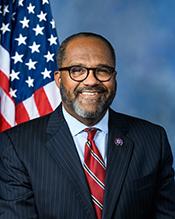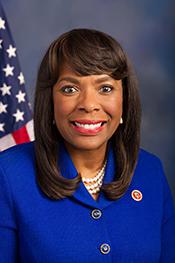0
0
0
PRIME Act
2/1/2024, 8:30 AM
Summary of Bill HR 4515
The PRIME Act, also known as Bill 118 hr 4515, is a piece of legislation currently being considered in the US Congress. The purpose of this bill is to amend the Federal Meat Inspection Act to allow for the sale of custom-slaughtered meat within states. This means that farmers and ranchers would be able to sell meat from animals that they have raised and had slaughtered at a custom facility, without having to go through the traditional USDA inspection process.
Supporters of the PRIME Act argue that it would give small-scale farmers and ranchers more flexibility and control over their businesses, as well as provide consumers with access to locally-raised, high-quality meat. They also believe that it would help to support rural economies and promote sustainable agriculture practices.
Opponents of the bill, however, have raised concerns about food safety and the potential for increased risk of foodborne illnesses if meat is not subject to USDA inspection. They argue that the current inspection process is in place to protect consumers and ensure that meat is safe to eat. Overall, the PRIME Act is a controversial piece of legislation that has sparked debate among lawmakers, farmers, and consumers. It remains to be seen whether or not it will be passed into law.
Supporters of the PRIME Act argue that it would give small-scale farmers and ranchers more flexibility and control over their businesses, as well as provide consumers with access to locally-raised, high-quality meat. They also believe that it would help to support rural economies and promote sustainable agriculture practices.
Opponents of the bill, however, have raised concerns about food safety and the potential for increased risk of foodborne illnesses if meat is not subject to USDA inspection. They argue that the current inspection process is in place to protect consumers and ensure that meat is safe to eat. Overall, the PRIME Act is a controversial piece of legislation that has sparked debate among lawmakers, farmers, and consumers. It remains to be seen whether or not it will be passed into law.
Read the Full Bill
Current Status of Bill HR 4515
Bill HR 4515 is currently in the status of Bill Introduced since July 10, 2023. Bill HR 4515 was introduced during Congress 118 and was introduced to the House on July 10, 2023. Bill HR 4515's most recent activity was Referred to the House Committee on Education and the Workforce. as of July 10, 2023
Bipartisan Support of Bill HR 4515
Total Number of Sponsors
1Democrat Sponsors
1Republican Sponsors
0Unaffiliated Sponsors
0Total Number of Cosponsors
34Democrat Cosponsors
34Republican Cosponsors
0Unaffiliated Cosponsors
0Policy Area and Potential Impact of Bill HR 4515
Primary Policy Focus
EducationAlternate Title(s) of Bill HR 4515
PRIME Act
PRIME Act
Performance, Resources, Inclusion, Matters, for Equity Act
To direct the Secretary of Education to award grants to institutions of higher education with an endowment lower than $900,000,000 and an annual operating revenue for athletic programs that is less than $20,000,000 to strengthen existing sports and athletic facilities at such institutions, and for other purposes.
Comments
Sponsors and Cosponsors of HR 4515
Latest Bills
A bill to require the Secretary of Veterans Affairs to disinter the remains of Fernando V. Cota from Fort Sam Houston National Cemetery, Texas, and for other purposes.
Bill S 1071December 10, 2025
Restoring Truth and Sanity to American History Act
Bill S 2385December 10, 2025
Reducing Waste in National Parks Act
Bill S 1926December 10, 2025
Holocaust Expropriated Art Recovery Act of 2025
Bill S 1884December 10, 2025
PATRIOT Parks Act
Bill S 2308December 10, 2025
Appalachian Trail Centennial Act
Bill S 2708December 10, 2025
Francis G. Newlands Memorial Removal Act
Bill S 2369December 10, 2025
Myakka Wild and Scenic River Act of 2025
Bill S 2270December 10, 2025
Holocaust Education and Antisemitism Lessons Act
Bill S 332December 10, 2025
Veterans Mental Health and Addiction Therapy Quality of Care Act
Bill S 702December 10, 2025





